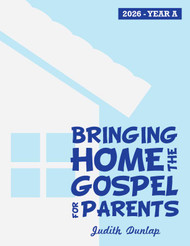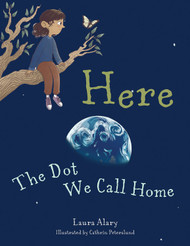Somewhere there must be where
no one wonders whether you belong…
So begins the title poem of this remarkable collection from a popular poet and scholar of mysticism.
These poems remind us that “home” shapes us, not as a particular place; home is a way of being in this world, for us and for the creatures with whom we share it. It finds expression in the inner light that carries us through dark seasons and in what inspires us to risk life in the face of death. Home comes to us in the unexpected glimpses we sometimes have of a wholeness resonant enough to hold us amid fragments. Many of these poems come from a long looking at the familiar and the ordinary, a patient listening for traces of a beauty that might still save us—in the rhythms of a street musician plying his trade in a Lisbon subway, the radiance of birdsong interrupting the night’s last hour, and the tolling of an old temple bell that “still sings in the silences.” They ponder the resilience that lies at the heart of the natural world, as well as in our desire to thrive amid the distractions that pressure us in our lives. In an over-saturated age like ours, they invite us to linger at the edges of silence, and wonder what it means that we are not made for reason alone, but “for what song can bring of solace and delight.”
Product Preview
| Format: | Paperback book |
|---|---|
| Product code: | PP6476 |
| Dimensions: | 5½" x 8½" |
| Length: | 128 pages |
| Publisher: |
Paraclete Press
|
| ISBN: | 9781612616476 |
| 1-2 copies | $16.72 each |
|---|---|
| 3-9 copies | $15.96 each |
| 10-49 copies | $15.20 each |
| 50-99 copies | $14.82 each |
| 100+ copies | $14.25 each |
Praise
The miracle of this collection is that out of a few ‘crumbs’—not so much as five loaves and too fishes, but the greening blade of a crocus, a gnarly old olive tree, the chatter of finch, the clouds that drift aimlessly by – Mark Burrows has gathered, like a busker in the subway or Christ in a desert place, ‘enough to make a feast’ and given us, ‘setting out on paths / whose ends we cannot see’, ‘the chance of home’.
Edward Clarke, Dublin Review of Books
These wise and tender poems practice what Mark S. Burrows calls ‘long listening,’ a focused attentiveness to the particulars of skies, clouds, trees, geese and songbirds; to city streets and the homeless; to his wife, children and cats. Call these meditative poems Burrows’ ‘Yes’ to the given world, his ongoing record of those instances of connectedness when we are at ‘home’ in what Pessoa called ‘the astonishing reality of things,’ a reality which is, as Burrows so touchingly knows, ‘nothing less than/the ordinary miracle of everything.’
Robert Cording, poet and author
I read The Chance of Home with a growing sense of pleasure and recognition. Here is a poet with a profound awareness of nature and its spiritual resonances, its correspondences. Mark S. Burrows wears his learning lightly as he meditates, in lovely and accessible language, on the penetration of spirit into matter. This is a poetry of incarnation, summoned in memorable words that echo and ring with a music of their own.
Jay Parini, poet, biographer, novelist, journalist and author
Mark S. Burrows’ poems offer the reader both invitation and gift—when you say yes, the treasures lay themselves out like a banquet for the heart. I love the sense of both longing and fullness held in tension through image and rhythm, a quiet knowing and wise unknowing revealed in the spaces between the words, and the grace of stillness beckoning from each poem.
Christine Valters Paintner, poet, retreat leader, and author
To read Mark S. Burrows’ poems in The Chance of Home is to take a walk with the saints, both the churched and the literary, and to see the sun-struck wonder of the world ‘here below’ through their and his eyes. Burrows is the gracious poet-guide on our journey, teaching the wisdom of Rilke, Augustine, Simone Weil, Heraclitus, Emily Dickinson, and Jesus, singing the song of ‘the lure of distances,’ feeding us with ‘crumbs...enough to make a feast,’ and revealing to us at every turn the ‘glimpse of home in the ordinary of it all.’ For home is both where we are and where we are heading in these poems as they paint the world we are lucky enough to inhabit, luminous and lit from within, a universe of mute beautiful things that somehow sing through the poet’s loving and attentive acts of translation and celebration.
Angela Alaimo O’Donnell, poet, professor of English, Creative Writing and American Catholic Studies at Fordham University, and author
It gives me great joy to read The Chance of Home: its gentle confidence fills me with hope. Often these poems put me into that serene Wordsworthian mood when I find I am ‘become a living soul.’ But they also confront silence, darkness and homelessness: in their evoking of song, they gather into themselves ‘the most ancient of things,’ understanding with Wallace Stevens that ‘poetry is a part of the structure of reality.’ Mark S. Burrows’ work beautifully manifests this truth as it provides a ‘chance,’ or song-filled sense, of home for the wandering soul on earth.
Edward Clarke, professor of English and creative writing at Oxford University, and author
Into this remarkable, grace-filled book of poems Mark S. Burrows has poured out his soul about the ‘wisdom of place’ and the risks we must take to find and define it in the ‘flow of life.’ For Burrows ‘the chance of home’ depends not simply on location but extends ‘beyond maps’ into the ‘vast geography of grace.’ The central question these powerful poems address is this: How do we belong? The Chance of Home thus reflects Burrows’ journey as the survivor of the ‘grit of loss [and] the grind of grief’ as well as his witness to the epiphanies experienced along the way....The Chance of Home offers a parable about the courage we need to accept a wisdom that ‘lures us by what we long for, and [finds] us within the reach of what we seek.’ With his beautiful book of poems Burrows has established himself as a major poet of fortitude and faith.
Philip C. Kolin, Editor of The Southern Quarterly, and author
This collection gathers us again to wonder at what has been given to us every day, anywhere. Mark Burrows’ poems invite us to see more than we see, beckoning us to wonder and to marvel. Rilke is listening here, and Wallace Stevens, too, but the distinctive voice is Burrows’ own music, at once sensuous and full of Augustinian, even apophatic, longing. Don’t we know what we see is here? Read and see.
Don Saliers, theologian and musician, Emory University, and author
In these elegant poems of stately simplicity and lyrical rhythms, Mark S. Burrows crafts a poetry that is resonant with what is reverential, as in ‘the poplar that girds the road’s far bend.’...This is a book of essences, whose author is drawn by the seasonal migrations of geese; and like those flocks, these poems consistently point to the true north on life’s metaphysical compass. These poems offer the reader ‘what we/ need to brave the stinging cold.’ Ultimately, however, this is a poetry of praise, which opens from within its own center, as does the lily.
Wally Swist, poet and author
Author
Mark S. Burrows is scholar, poet, and teacher, known internationally for his work on theology and spirituality, mysticism and poetics. For more than two decades he taught in several graduate theological schools in the US and Germany. He is also a translator of German poetry and prose into English, and currently lives and teaches in Germany. Recent publications include his widely-celebrated translation of Rilke, Prayers of a Young Poet (Paraclete), and Meister Eckhart’s Book of the Heart (Hampton Roads).



![[Alive in the Word] From Home to Home: Finding Meaning in Mobility [Alive in the Word] From Home to Home: Finding Meaning in Mobility](https://cdn11.bigcommerce.com/s-86nw1qhj/images/stencil/190x250/products/5010/5474/cover-750__20799.1640557990.jpg?c=2)





